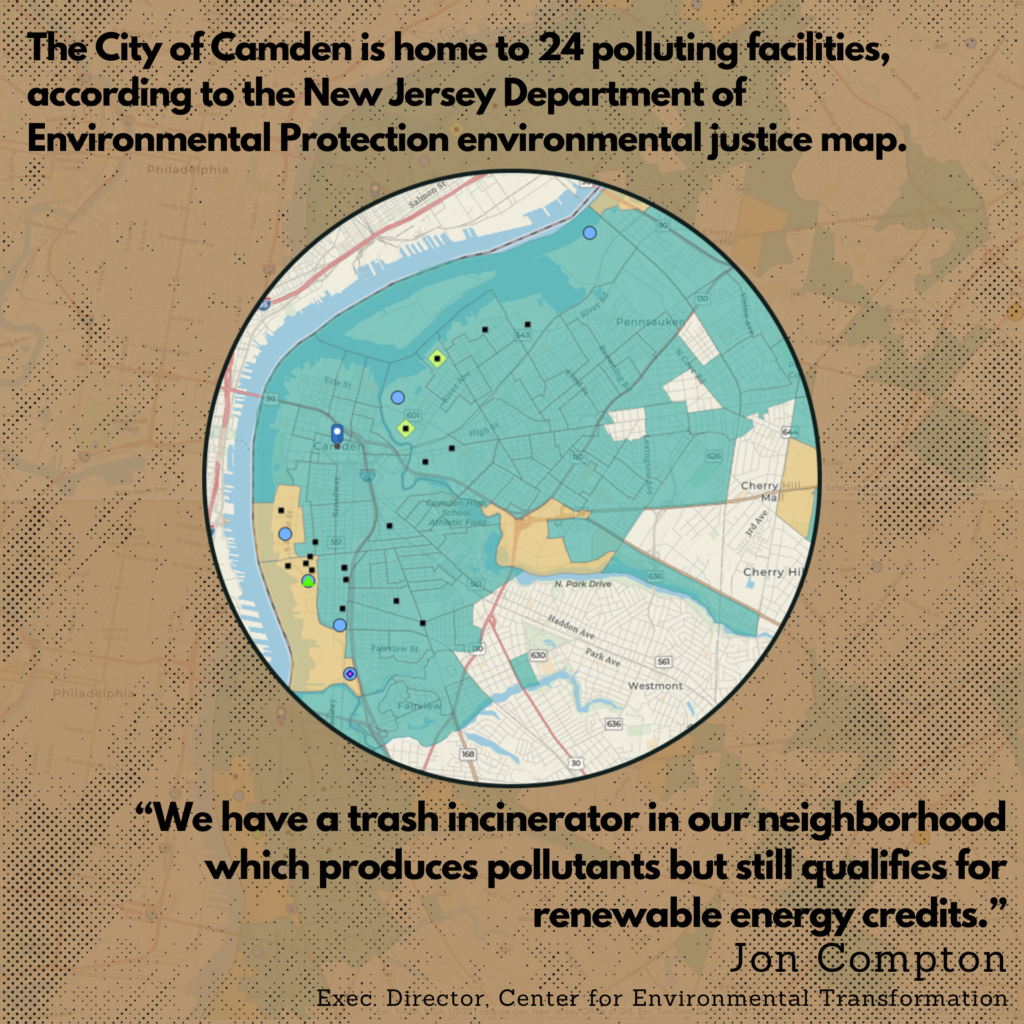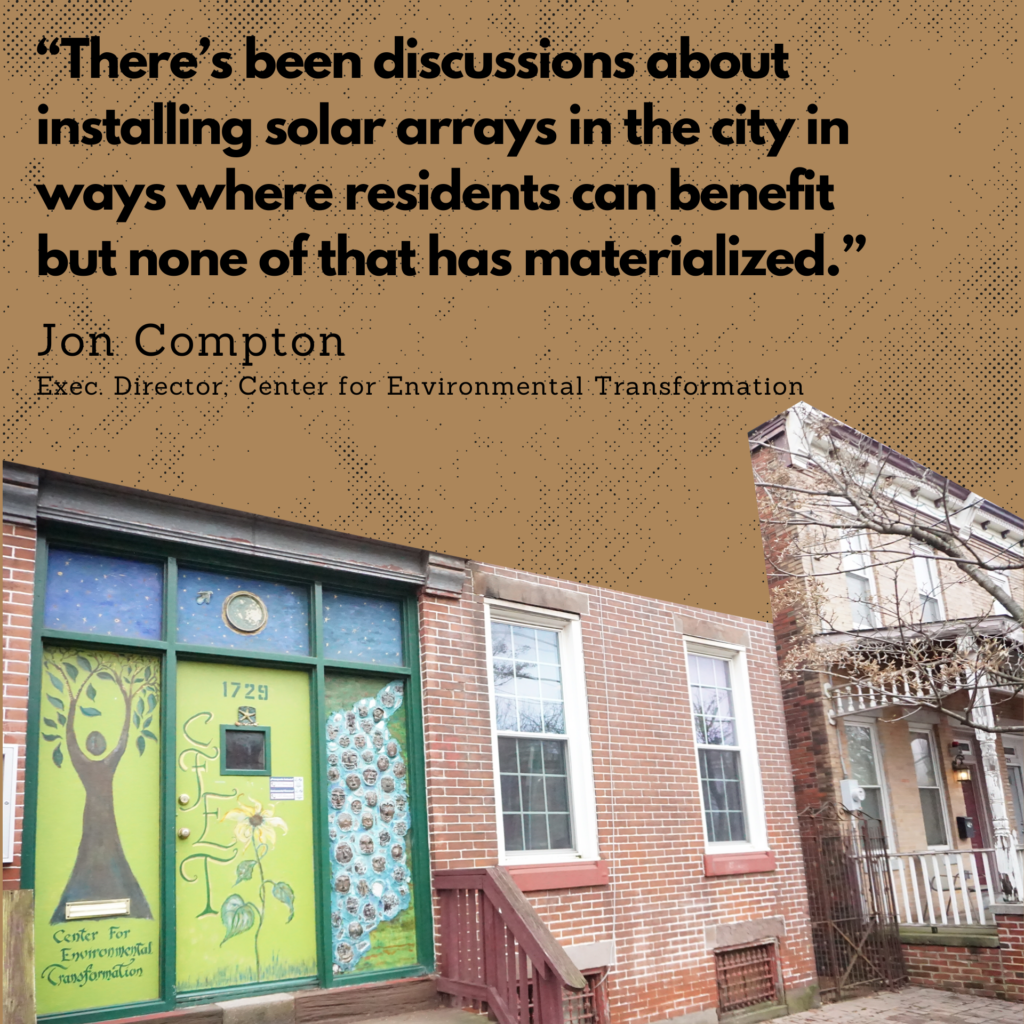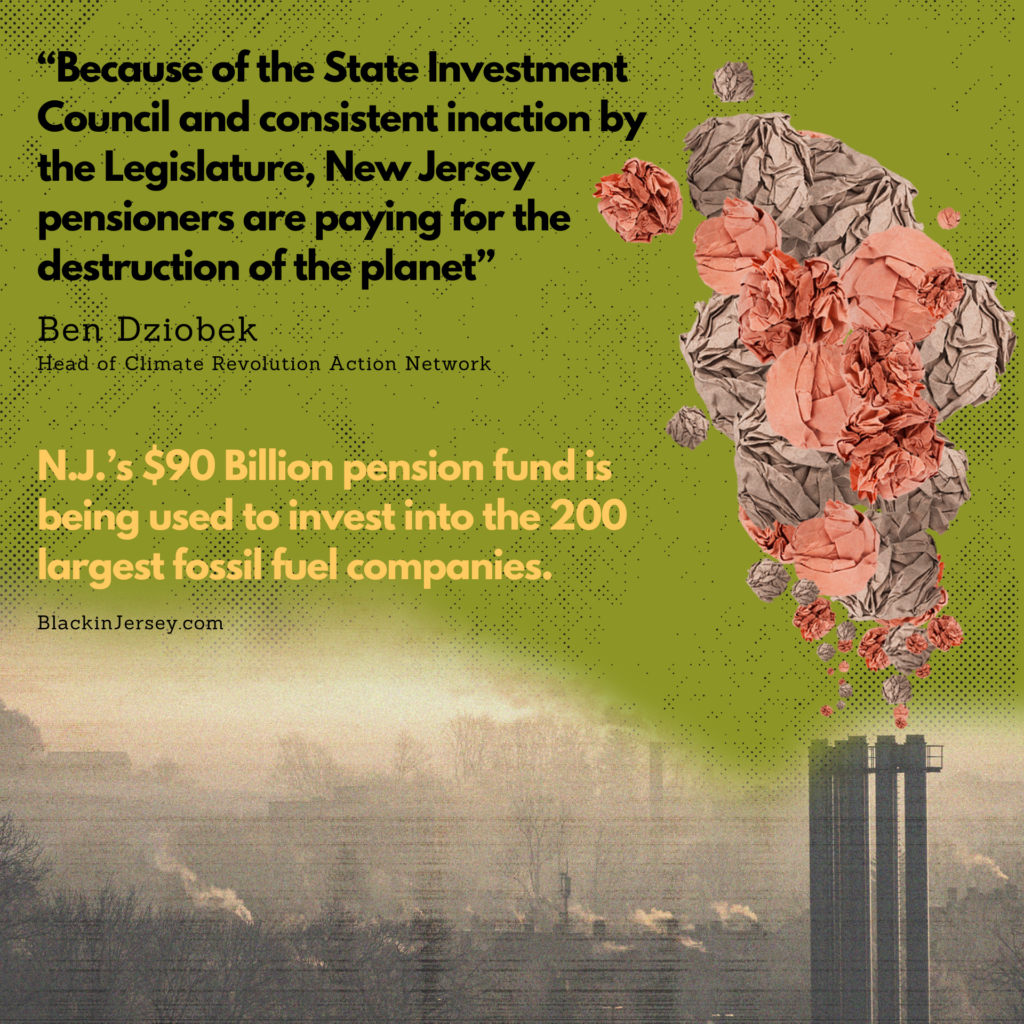This week, the Senate Environment and Energy Committee made sizable steps towards N.J.’s transition to 100% green energy by 2035 with mandates for public utility companies, divestments from fossil fuel companies and some limitations on further power plant construction.
At a March 4 committee hearing lawmakers and members of the public debated these issues.
While residents and small businesses hope to see the benefits of clean energy infrastructure upgrades, communities like Camden face several negative health impacts from pollution. As state lawmakers discuss clean energy legislation, advocates say helping marginalized communities could take a higher priority.

Pressure on Power Plants
Proposed amendments to the state constitution seek to ban the construction of new fossil fuel power plants. A bill, SCR11, would do just that, but it would still allow the construction of certain plants if they are used intermittently during periods of peak demand.
Coined “Peaker Plants”, this loophole concerns environmental group leaders.
At Monday’s hearing, Dave Pringle of Empower NJ, said New Jersey’s proposed ban does not go far enough.
“The only projects this will ban will be new gas power plants of a very large nature,” he said. “Clearly, economics dictates that those will not happen,” he shared.
According to the bill, the exception would also allow certain power plants to operate in emergencies or when the power grid is experiencing stress
“It is short-sighted to cut out fossil fuels,” Dennis Hart, executive director of the Chemistry Council of New Jersey, said at Monday’s committee hearing. “Our nuclear plants are 60 years old; you don’t know how long they’re going to be there.”
Sen. Bob Smith, leader of the Senate Environmental Committee, argued that New Jersey is “not moving fast enough” to address fossil fuel consumption — a leading cause of climate change.
“The end of the world is coming, for those people who haven’t noticed. Go to Texas and you can see the state burning down,” Smithtold the committee.

The proposal to ban fossil fuel plant construction l still needs approval in the full Senate, and it has yet to make it through the General Assembly’s legislation process (i.e. committee hearings and a full Assembly floor vote). All constitutional amendments passed in Trenton must also be approved by a public referendum in a future general election.
Communities seek Change
Areas with industrial facilities like those in Camden face higher rates of negative health impacts from pollution and as state lawmakers discuss clean energy legislation, advocates say helping marginalized communities should take a higher priority.
“We have a trash incinerator in our neighborhood that produces pollutants but still qualifies for renewable energy credits.” Jon Compton, Executive Director for the Center for Environmental Transformation in Camden said.
The City of Camden is “environmentally overburdened” and home to 24 polluting facilities, according to the New Jersey Department of Environmental Protection’s environmental justice map.
Advocates say environmentally overburdened communities are in desperate need of clean energy infrastructure.

Compton says a pattern of broken promises on local sustainable energy infrastructure can be felt by Camden residents.
“There’s been discussions about installing solar arrays in the city in ways where residents can benefit but none of that has materialized,” Compton said.
Solar Energy Access Approaches
The committee unanimously passed S-2816 which would require all electric utility companies in the state to develop plans to upgrade their electric grids to provide residents with access to solar energy solutions. Fred DeSanti, Executive Director of the New Jersey Solar Energy Coalition, highlighted the impact of this bill during a committee meeting on March 4th. He explained that Atlantic City Electric’s planned upgrades over four years would enable 103,000 customers to access solar energy, covering approximately 20% of their residential supply.
However, the current limitations of New Jersey’s electrical grid, particularly in South Jersey, pose challenges to this solar transition, as noted by DeSanti. He pointed out frequent rejections faced by developers seeking to install solar projects due to grid capacity issues.
Under the new bill, New Jersey’s four major utility companies, including PSE&G, Jersey Central Power & Light, Atlantic City Electric, and Rockland Electric, will have 90 days from the enactment of the law to submit their grid upgrade plans. The state board will then have 120 days to approve these plans.

This expedited timeline has raised concerns from Brian O. Lipman, Director of the State Division of Rate Council. Lipman fears that the tight schedule and limited oversight might lead to increased costs for consumers, as hasty planning could result in “imprudent and unreasonable costs.”
Addressing these concerns, the bill’s prime sponsor, Senator Bob Smith, assured that he is open to further amendments. He emphasized the necessity of technological upgrades to the grid, asserting that the associated costs are minimal in the grand scheme of utility expenses and crucial for increasing solar energy access in residential areas.
Divestment from Top Fossil Fuel Companies
N.J. still allows for state pension funds to invest in fossil fuel companies. Environmentalists support S198 which would bar the state from investing state retirement funds into the 200 largest fossil fuel companies and require divestment from coal companies within two years and other fossil fuel companies within one year.
Additionally, the State Investment Council would be required to report on divestment efforts 120 days after the bill becomes law and annually thereafter.
New Jersey’s $90 billion pension fund covers the retirement benefits for an estimated 815,000 current and retired government workers.

“Because of the State Investment Council and consistent inaction by the Legislature, New Jersey pensioners are paying for the destruction of the planet,” Ben Dziobek, head of the Climate Revolution Action Network said at Monday’s meeting.
The organization is, a youth-led group fighting climate change.
Some business groups opposed the bill.
“It’s bad policy to use the pension to try and drive public policy,” Ray Cantor, senior lobbyist for the New Jersey Business and Industry Association, said at Monday’s meeting.
Senator Smith said the impact of climate change is too great to continue supporting fossil fuel companies.
“My hope is that if they get called out by enough state governments, the federal government, that maybe they’ll change what they do,” Smith said.
“We have just gone through the hottest year in human history,” Smith continued. “Texas is currently burning down. Two years ago we had New Jersey citizens dying from (Tropical Storm ) Ida. We are in big, bad, serious trouble.”
Though, the clean energy package passed the Senate Energy Committee it may still need to go through the Senate Budget Committee before a full Senate vote. The General Assembly would also need to take up the legislation before it can reach Gov. Phil Murphy’s desk.
Murphy is vying to make New Jersey a leader in sustainable energy in the next decade.
This story was produced as part of the Center for Cooperative Media at Montclair State University’s South Jersey Information Equity Project fellowship and supported with funding from the Independence Public Media Foundation, the Geraldine R. Dodge Foundation, and the NJ Civic Information Consortium.
